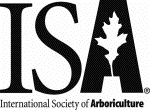
| Current Articles |
| Browse Archives |
| Search |
| Contact Us |
| AUF Home |
 |
Arboriculture & Urban Forestry Online
| Volume 34, Issue 6 —
November 2008
https://www.isa-arbor.com/Publications/Arboriculture-Urban-Forestry |
|
Assessing Urban Forest Structure and Health in Shenyang, China (View PDF) Zhu Hua Ning, Xing Yuan He, Chang Fu Liu, and Kamran K. Abdollahi Abstract: This article summarizes the assessment of the urban forest structure and health in central areas of Shenyang, China. Urban forest cover analysis was conducted using aerial photographs, satellite imagery, and a field survey of 282 plots as major study methods. Based on the location, function, and management objectives, the urban forests were classified into five cover types: landscape forests, ecologic forests, road forests, park forests, and commercial forests. Total tree cover in the study area is 7.85%. Most trees and shrubs are in good to very good health and have relatively small diameter at breast height and height. The major tree species are different in urban and suburban areas, which was the result of the natural occurrence of the species and manmade disturbances. Major recommendations for the future management include increasing urban forest cover, especially in the city center, east side, and outskirts; and increasing species diversity and urban forest connectivity. Keywords: Distribution; health condition; species composition; tree cover; urban forest structure. |
Current Articles
| Browse Archives | Search | AUF Home | ISA Home
| Get Acrobat